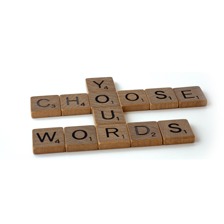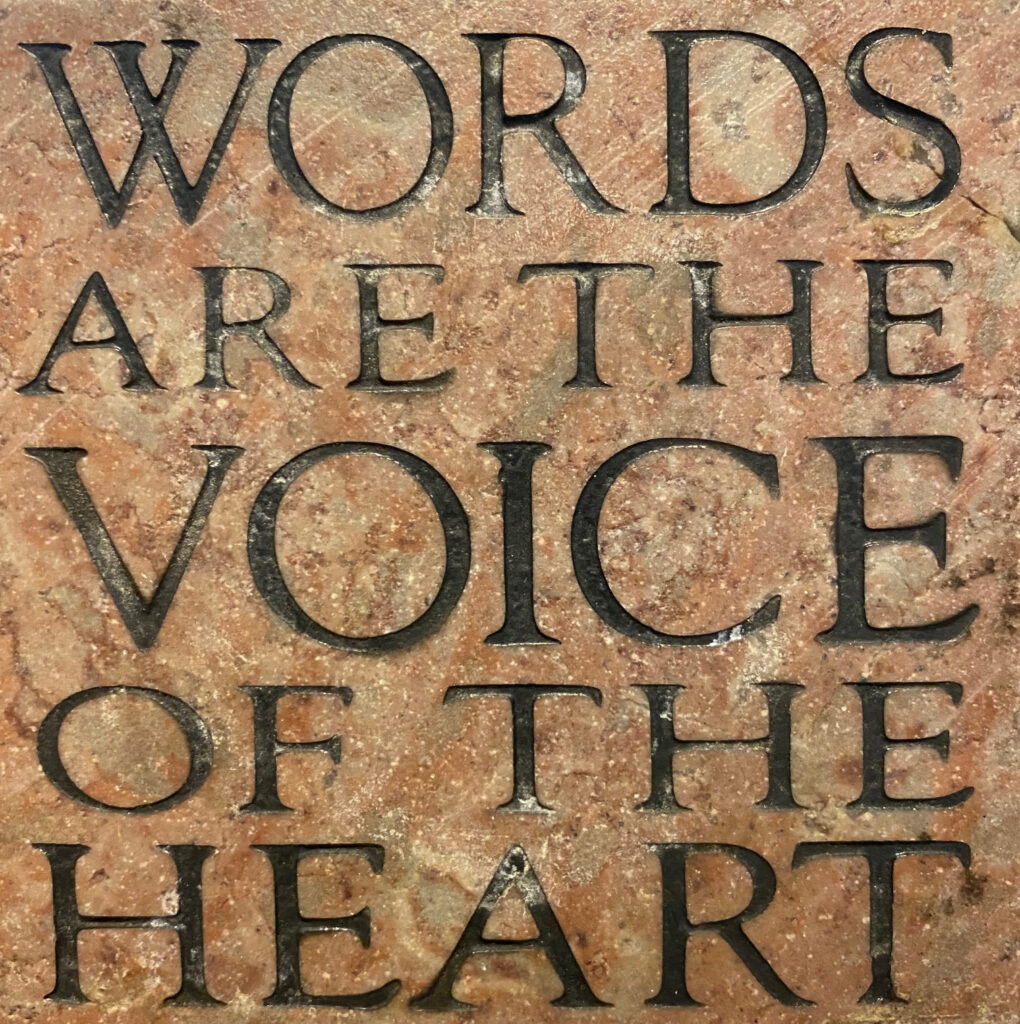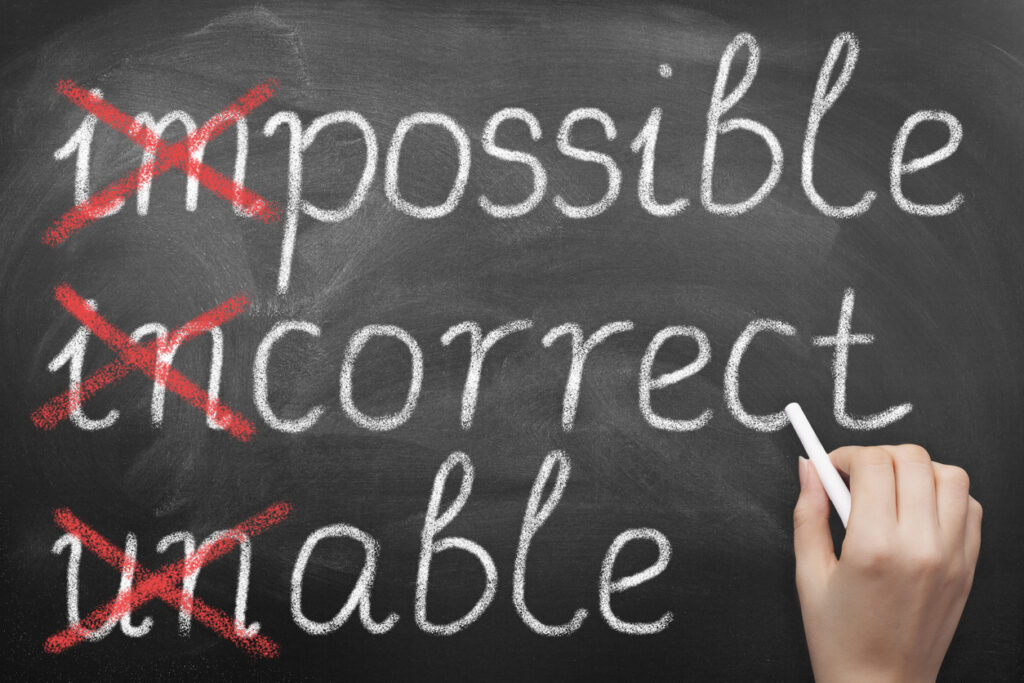If it isn’t evident by where you are right this minute, I love words. My wife of 40-plus years (and likely some of my blog’s current and all of its former readers) would attest that I love them a bit too much. It’s hard to be hushed when you’re a self-professed logophile and, for some odd reason, believe others might find some value in what you have to say.
Whether spoken or written, words can have a powerful impact — positive or negative. They can win the girl or break the relationship. They can cement the deal or put you on the street. They can inspire or deride. They can build up others or tear them down. They can bring society together or rip it apart. They can bring smiles or tears. They can change someone’s entire day or ruin someone’s entire life. They can move us or paralyze us.

Be Mindful When It Comes To Your Words
The words you choose in your life are remembered. They land in our hearts and minds; indeed, Confucius say (literally), “words are the voice of the heart.” They make a difference, good or bad, and one doesn’t ever get the opportunity to replace the hurtful words spoken; in fact, a blow with a word strikes deep.
I get that well done is better than well said. Ditto with characterizing and trusting people by their actions, not their words. But therein lies the dilemma. I believe that you are not only who you are by what you do, but also by what you say — verbal or written. What and how you communicate your thoughts is an action — one that defines you. In these times of numerous social-media platforms where the power of words — either written or auditory — dominate our interactive space and their influence is amplified, words count.

Words Stoke Our Vulnerability
Too often, we forget how dangerous words can be. Time and again, history — including topics pulled from recent headlines — has demonstrated that words can ignite something in people, having positive and negative consequences. If history proves anything, it’s that words will carry and can be a dangerous accelerant, reflecting the full spectrum of a speaker’s or writer’s objectives, whether espousing unvarnished truth and genuineness or advocating hypocrisy and deceitfulness.
The Manipulative Power Of Words
There is little question that the spectrum is broad, indeed, of those who will buy into someone’s words, even when, or perhaps especially, a talented speaker’s or writer’s rhetoric is manipulative, serving up discourse solely as the inspiration or stimulus to action.
I’m astounded that simple declarations such as “Many people are saying … ” or “Believe me … ” can elevate words to a level of trustworthiness. Ditto with their simple appearance on a social media site. If anything underscores the power of words in our society, it’s that they are the most potent stimulus to engagement, even when statements are proven, by every available fact-check, baseless.
Bottom line? Words are a form of action capable of influencing change. They say more about us than we realize. They reflect “attitude” — good, bad or indifferent. The meanings behind what we say or write can make us look selfish, reckless, childish and irresponsible.
Written Versus Spoken
I fancy myself a wordsmith, but only at the keyboard. On the opposite end of that spectrum are the many talented teachers, ambassadors, politicians and CEOs who have passed into and out of our lives, each possessing the gifts of verbal articulation and thinking on their feet. Writing a better sentence is something I’ve been practicing for more than 60 years. The truly blessed can do both consistently and at a high degree of purpose.
Which is more powerful? You could make a strong case for either. Spoken words are more likely to lack organization, including unintended repetitiveness, and be ripe with grammar issues. Written communication has a better shot of being organized and well-formed.
That being opined, I grudgingly accept that verbosity, especially today, tips the influence scales to those talented in that fashion. Unquestionably, every generation has its truly amazing, articulate speakers and leaders, and they have each rightfully earned their due. Conversely, spoken words also favor the flimflammer and flip-flopper for the simple reason that oral communication allows speakers to dodge, deny and even ignore. The power of speech is that it can be more easily unsubstantiated and bundled with a foundation of disinformation, deceit, falsehoods and evasion. Moreover, in today’s highly repetitive, never-ending news cycle, the gifted speaker knows they will have another opportunity to convey their message … or change it altogether. And the masses will follow. (Editor’s sidebar: Be careful when you follow the masses. Sometimes the M is silent.)
Behind door number two, the written word, by definition, comes with attribution and sits in the annals of history as accessible documentation for future reference. A person can’t deny what they wrote. It’s there for the ages.
The Beauty Of Words Is Immeasurable
Thankfully, there is great beauty in words. Written or spoken words mirror one’s soul, providing a look into what kind of person someone is. Words define one’s life and experiences. They shape and expose who you are. They are a mirror to your heartbeat. They reveal what you treasure and what you fear. How powerful must it be that words, perhaps more than anything else, can make you smile? What is stronger or more beautiful than “I want you in my life for today, tomorrow and forever”? Kind, loving words paint the picture. “Miss you, babe.” “You light up the room.” “I appreciate you.” “Great job.” “I love you.”

As beautiful and as powerful as words can be, isn’t it strange that no word holds enough power to ease a heart’s pain?
Having Fun With Sneaky Words
I’ll close this commentary with some fun word-kneading. Manipulation is not always a bad thing. Well-chosen written words can slice and dice with subtly so nuanced that meaning can be disguised. Such doublespeak uses words in a manner as to twist their meaning to obscure what is actually being said.
For example, have you ever been put in a position of having to write letters of recommendation for people with debatable qualifications? Check out these statements that can be read two ways — i.e., providing an honest opinion of mediocre work habits while allowing the subject to interpret the comments quite differently.
- To describe an extremely lazy person: “In my opinion, you will be very fortunate to get this person to work for you.”
- To describe a totally inept person: “I most enthusiastically recommend this candidate with no qualifications whatsoever.”
- To describe an ex-employee who had problems getting along with fellow workers: “I am pleased to say that this candidate is a former colleague of mine.”
- To describe a candidate who is so unproductive that the job would be better left unfilled: “I can assure you that no person would be better for the job.”
- To describe a job applicant not worth further consideration: “I would urge you to waste no time in making this candidate an offer of employment.”
- To describe a person with lackluster credentials: “All in all, I cannot say enough good things about this candidate or recommend him too highly.”
Litigation-proof? Perhaps not, but wouldn’t it be fun to see if the reviewer/writer in each example could keep a straight face if challenged with interpretations of the choice of words?
Words, Words, Words
There is nothing we depend more on than our ability to give and receive communication. Goodness knows I enjoy pontificating and pounding on this keyboard, perhaps too much. Stealing a line from one of my favorite “word” geniuses, comic Steven Wright, sometimes I wish my first word was “quote,” so my last words on my deathbed could be “end quote.”
Let’s just leave it that some words are magical and historical — The Lord’s Prayer is 66 words, the Gettysburg Address is 286 words, the Declaration of Independence is 1,322 words, and there are 1,667 words in the “I Have A Dream” speech. Some words, not so magical — government regulations on the sale of cabbage total 26,911 words.
All words — impactful and a window into one’s soul. Use them wisely and for good. And don’t underestimate the power of the Dark Side.










